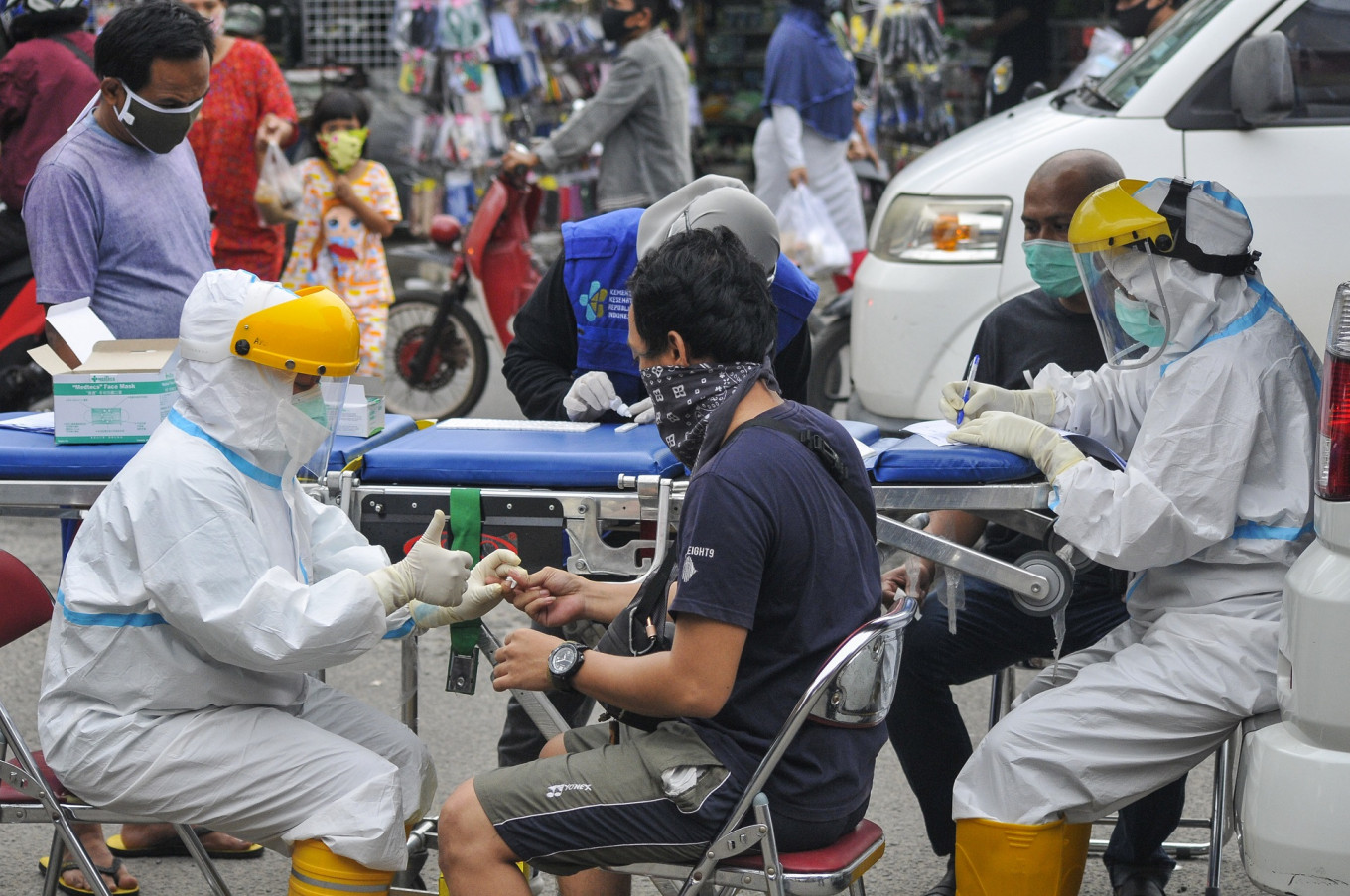
COVID-19: Bekasi prepares new strategies to battle epidemic
by News DeskThe Bekasi administration in West Java is preparing new strategies to mitigate the COVID-19 epidemic, focusing on strengthening the quality of patient care and small-scale virus control in subdistricts, as the administration is unlikely to follow Jakarta in imposing full-scale restrictions.
Bekasi, one of Jakarta's satellite cities, has been imposing transitional large-scale social restrictions (PSBB), known as the adaptation to a new normal (ATHB), a policy with eased restrictions that recently failed in the capital.
“We are discussing what to take on with Muspida [consultative leadership board] [on Monday]. Of course, we won’t have the PSBB,” Bekasi Mayor Rahmat Effendi said on Sunday, as quoted by kompas.com.
Rahmat said Bekasi would improve the quality of patient care, including by preparing a hotel designated for the isolation of asymptomatic COVID-19 patients, with the help of the National Disaster Mitigation Agency (BNPB).
“In addition to Patriot Stadium, isolation will be carried out at the [hotel] if the BNPB is [ready to help]. We have to know the operational standards and the technical instructions,” he said.
The Bekasi administration will strengthen the implementation of RW Siaga (community unit alertness) in every subdistrict, with the aim of controlling COVID-19 transmission and maintaining food security, Rahmat said.
“The [West Java] province recommends micro PSBB, aiming to strengthen alertness in community units and apply local quarantines in that scope,” he said.
He said the administration would extensively trace and prevent COVID-19 family clusters in community units categorized as “red zones”.
Rahmat expressed hoped that such strategies could also help improve the economy.
“During the adaptation period, there are things we need to open, namely the economy and employment. Now, if we return to PSBB, we have to [restrict vehicle mobility with] 32 checkpoints and go back to the initial process,” he said.
Similar to Jakarta, Bekasi has been experiencing a constant increase in COVID-19 cases over the past two months, especially since the city began to relax the PSBB.
Bekasi has confirmed 2,072 cases as of Sept. 6, an increase from 1,324 cases as of Aug. 18, meaning an average of 24 people has tested positive for COVID-19 a day.
From the total cases, 254 cases are active, including 207 patients under self-isolation and 47 patients under treatment.
Rahmat said hospital bed capacity in Bekasi was almost full. The city has 198 isolation beds in 45 referral hospitals. (syk)